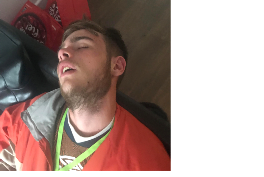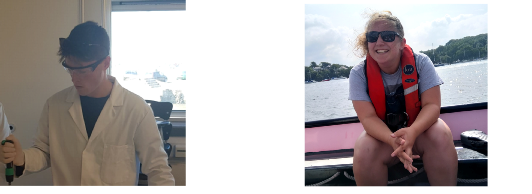
DISCLAIMER
All views and opinions expressed on this page are those of the individual and not necessarily those of the University of Southampton.
Plymouth Field Course 2019
Group 7
Introduction
Welcome to the Group 7 website for the 2019 Plymouth field course. The project ran for 10 days from 2nd to 12th July and was based at the Marine Station on Plymouth Sound. After previously being based in Falmouth, this was the second year of the course running since its return to Devon’s largest city.
Course Aims
- To improve understanding of course material and apply skills gained throughout the previous two years of study to a real world scenario
- To collate and collect a range of biological, chemical and physical data and develop an understanding of how the processes work together to produce the Plymouth sound ecosystem
- To undertake official scientific surveys in varying marine environments to gain more experience of practical boat work and data sampling
Insert group photo?

Plymouth Field Course 2019
Group 7
About the team
We are a group of nine third year marine biologists and oceanographers studying at the university of Southampton. Our range of disciplines allows us to effectively look at a wide array of variables within Plymouth Sound with everyone bringing different skills to the project.
Jack Williams
Aka Team Leader
Msci Marine Biology
James Cook
Aka The Eagle
Msci Marine Biology
Caitlin McCarthy
Aka Data Manager
Bsc Oceanography
Achilleas Lekkas
Aka Poseidon
Bsc Marine Biology with Oceanography
Amber West
Aka Web tech
Msci Marine Biology
Filippo Bianco
Aka The Skipper
Bsc Oceanography
Rory Heydon
Aka Luv
Msci Marine Biology
Rachel Lancaster
Aka The Liability
Msci Oceanography
Matty Smithbone
Aka Mr Photogenic
Msci Oceanography




- The data this website is based on was obtained from three main surveys and one complementary field outing. These were as follows:
- Geophysics sidescan survey (inshore)- undertaken on the Echo Explorer. This was to look at the varying seafloor geology just south of the Plymouth breakwater and to see how this impacted the biota observed. This was aided by a fieldtrip to Renney Rocks to see the underlying geology of the area above land to gain a better understanding of the images produced by the sidescan sonar.
- Offshore survey- completed on the RV Callista with the aim of observing the stratification of the water column in progressively offshore locations, with the E1 station being the furthest point out and any effect this has on the nature of the observed phytoplankton communities.
3. Estuarine survey- biochemical analysis of the Tamar estuary performed on the RIBs (Miss Piggy and Flying Pig). T/s profiles were established, chlorophyll samples taken and zooplankton nets deployed.